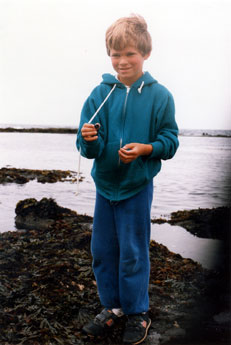A new study out of Cornell University suggests that environmentalism is born in children who are exposed to nature before the age of 11.
Nancy Wells, assistant professor of design and environmental analysis in the College of Human Ecology at Cornell, and Kristi Lekies, a research associate in human development at Cornell, analyzed data from a 1998 U.S. Department of Agriculture Forest Service survey that examined childhood nature experiences and adult environmentalism. The researchers sampled more than 2,000 adult Americans, ages 18 to 90, about their early childhood nature experiences and their current adult attitudes and behaviors relating to the environment.
They found that “wild” nature activities in childhood are correlated to adult interest in the environment.
“Although domesticated nature activities—caring for plants and gardens—also have a positive relationship to adult environment attitudes, their effects aren’t as strong as participating in such wild nature activities as camping, playing in the woods, hiking, walking, fishing and hunting,” said Wells. “When children become truly engaged with the natural world at a young age, the experience is likely to stay with them in a powerful way—shaping their subsequent environmental path.”
 Fun in the tidepools |
“Our study indicates that participating in wild nature activities before age 11 is a particularly potent pathway toward shaping both environmental attitudes and behaviors in adulthood,” she added.
Wells, an environmental psychologist, previously published research indicating that nature around a home can help protect children against stress and boost cognitive functioning.
The new study found that participation in scouts or other forms of environmental education programs had no effect on adult attitudes toward the environment.
“Participating in nature-related activities that are mandatory evidently do not have the same effects as free play in nature, which don’t have demands or distractions posed by others and may be particularly critical in influencing long-term environmentalism,” explained Wells.
The findings will be published in the next issue of Children, Youth and Environment (Vol. 16:1).